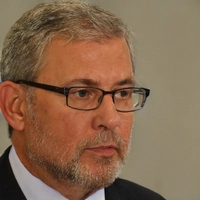What can a computer engineer do for work in the F1 industry?
As a computer engineer, you may be wondering what kind of opportunities are available for you in the F1 industry. In this article, we will explore various roles that a computer engineer can take up in the world of Formula 1 racing. We will discuss how your skills can be applied in this exciting and fast-paced industry.
Developing Racing Simulation Software
One of the key aspects of Formula 1 is the development of racing simulation software. This software is used by teams to test and improve their cars, as well as to train their drivers. As a computer engineer, your skills in software development, programming languages, and graphics would be invaluable in creating, improving, and maintaining simulation software for F1 teams. Additionally, you could work on integrating the software with other systems, like motion platforms or virtual reality headsets, to create an even more immersive training experience for drivers.
Data Analysis and Performance Optimization
Data plays a crucial role in Formula 1 racing. Teams collect vast amounts of data from their cars during races and testing sessions. This data can include information on tire wear, engine performance, aerodynamics, and more. As a computer engineer, you could be responsible for analyzing this data and using your skills in data analysis, machine learning, and artificial intelligence to provide insights that help teams optimize their cars' performance. This could involve developing algorithms to predict tire wear, creating models for aerodynamic improvements, or even analyzing driver performance data to help them improve their skills.
Telemetry and Communication Systems
Telemetry is the process of collecting data from the car during a race and transmitting it wirelessly to the team's engineers. This data is crucial for teams to make informed decisions about their race strategy, such as when to pit for new tires or make adjustments to the car's setup. As a computer engineer, you could be responsible for designing and maintaining the telemetry systems used by F1 teams. This could involve working with wireless communication technologies, data encryption, and ensuring the reliability and security of data transmission.
Onboard Electronic Systems
Modern F1 cars are equipped with a myriad of onboard electronic systems, such as engine control units (ECUs), sensors, and data loggers. These systems are responsible for controlling various aspects of the car's performance, such as engine power, fuel consumption, and gearbox operation. As a computer engineer, you could be involved in the design, development, and maintenance of these electronic systems. This would require expertise in embedded systems, microcontroller programming, and electronic circuit design.
Developing Driver-Assist Technologies
Driver-assist technologies are becoming increasingly important in Formula 1 racing, helping drivers make better decisions on the track and improve their overall performance. As a computer engineer, you could be involved in the development of these technologies, such as predictive lap time systems, collision avoidance systems, and driver coaching tools. This would require skills in software development, sensor integration, and machine learning algorithms.
Augmented Reality and Virtual Reality Applications
Augmented reality (AR) and virtual reality (VR) technologies are gaining traction in the F1 industry, being used for both training purposes and enhancing the viewing experience for fans. As a computer engineer, you could work on developing AR and VR applications for F1 teams and broadcasters. This could involve creating immersive training environments for drivers, designing interactive fan experiences, or even developing new ways for teams to analyze race data using AR and VR tools.
Designing and Maintaining Race Control Systems
Race control systems are essential for the smooth running of a Formula 1 race weekend. These systems include timing and scoring systems, race management software, and communication systems between race control, teams, and marshals. As a computer engineer, you could be responsible for designing, developing, and maintaining these systems, ensuring their reliability and accuracy throughout the race weekend. This would require expertise in software development, network engineering, and database management.
Working on F1 Esports and Sim Racing Platforms
Esports and sim racing have become increasingly popular in recent years, with F1 teams and drivers taking part in virtual races and championships. As a computer engineer, you could be involved in the development and maintenance of F1 esports and sim racing platforms. This could involve working on the simulation software itself, designing and implementing online multiplayer systems, or even creating new and innovative ways for fans to engage with virtual racing.
Improving Fan Engagement and Digital Media
With the rise of digital media, F1 teams and organizations are constantly looking for new ways to engage with fans and provide them with unique and immersive experiences. As a computer engineer, you could work on developing digital platforms, mobile applications, and interactive content for fans to enjoy. This could involve creating apps for live race data, designing virtual reality experiences, or even developing tools for fans to analyze and compare their favorite drivers and teams.
Conclusion
As we have seen, there are numerous opportunities for computer engineers to work in the F1 industry. From software development and data analysis to esports and fan engagement, your skills as a computer engineer can be applied in various roles within this exciting and fast-paced world. If you have a passion for Formula 1 and a background in computer engineering, consider exploring some of these career paths and become a part of the thrilling world of F1 racing.
